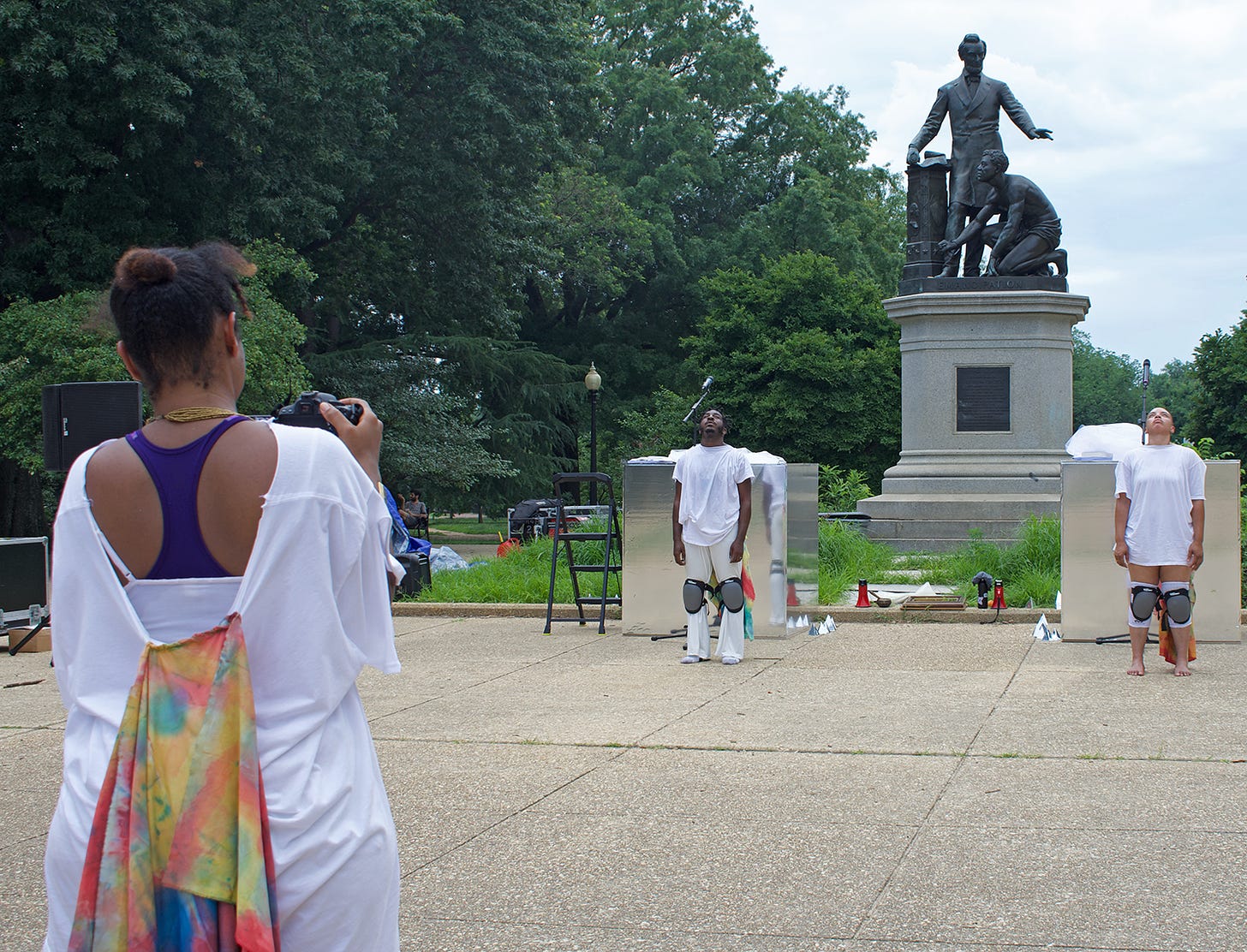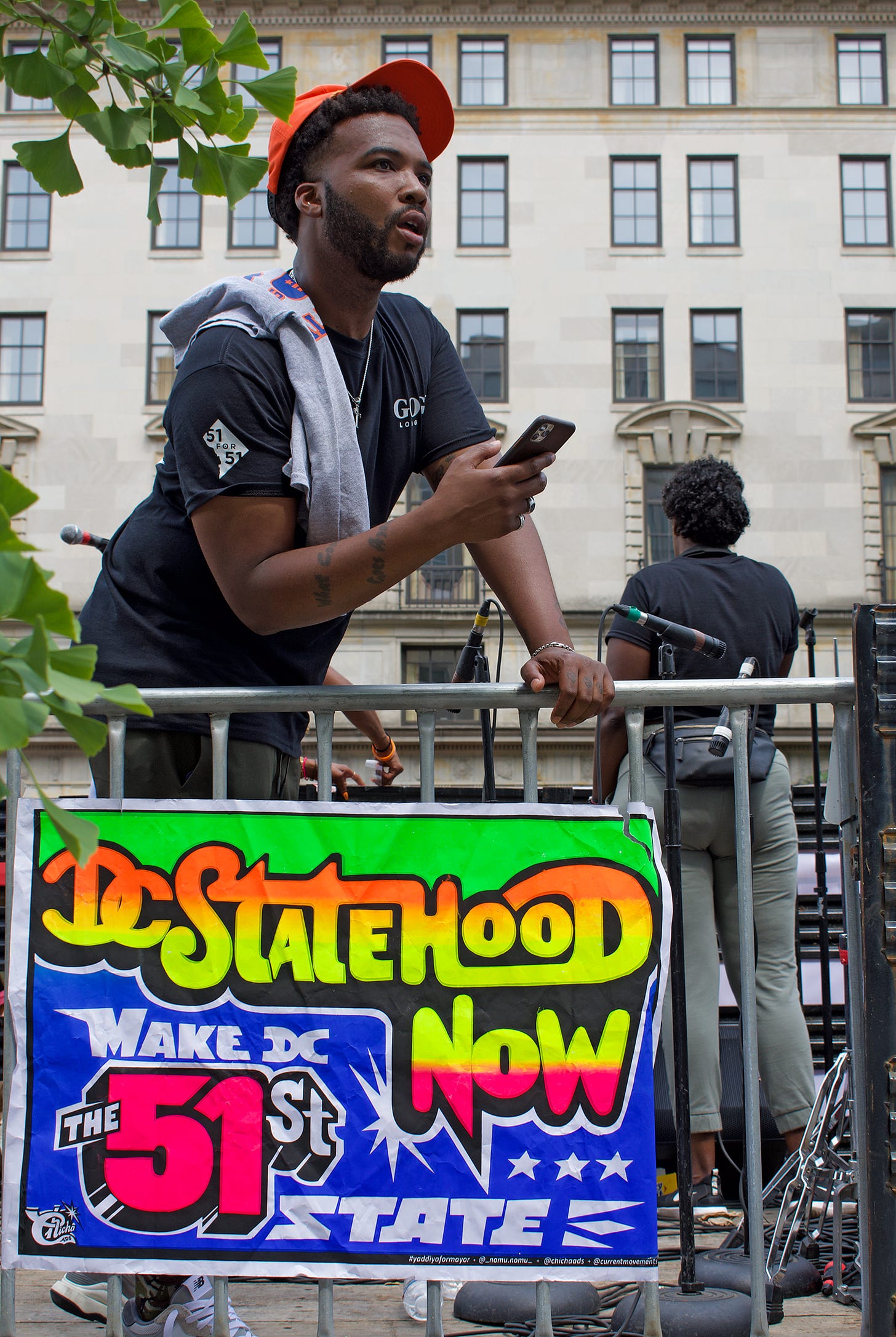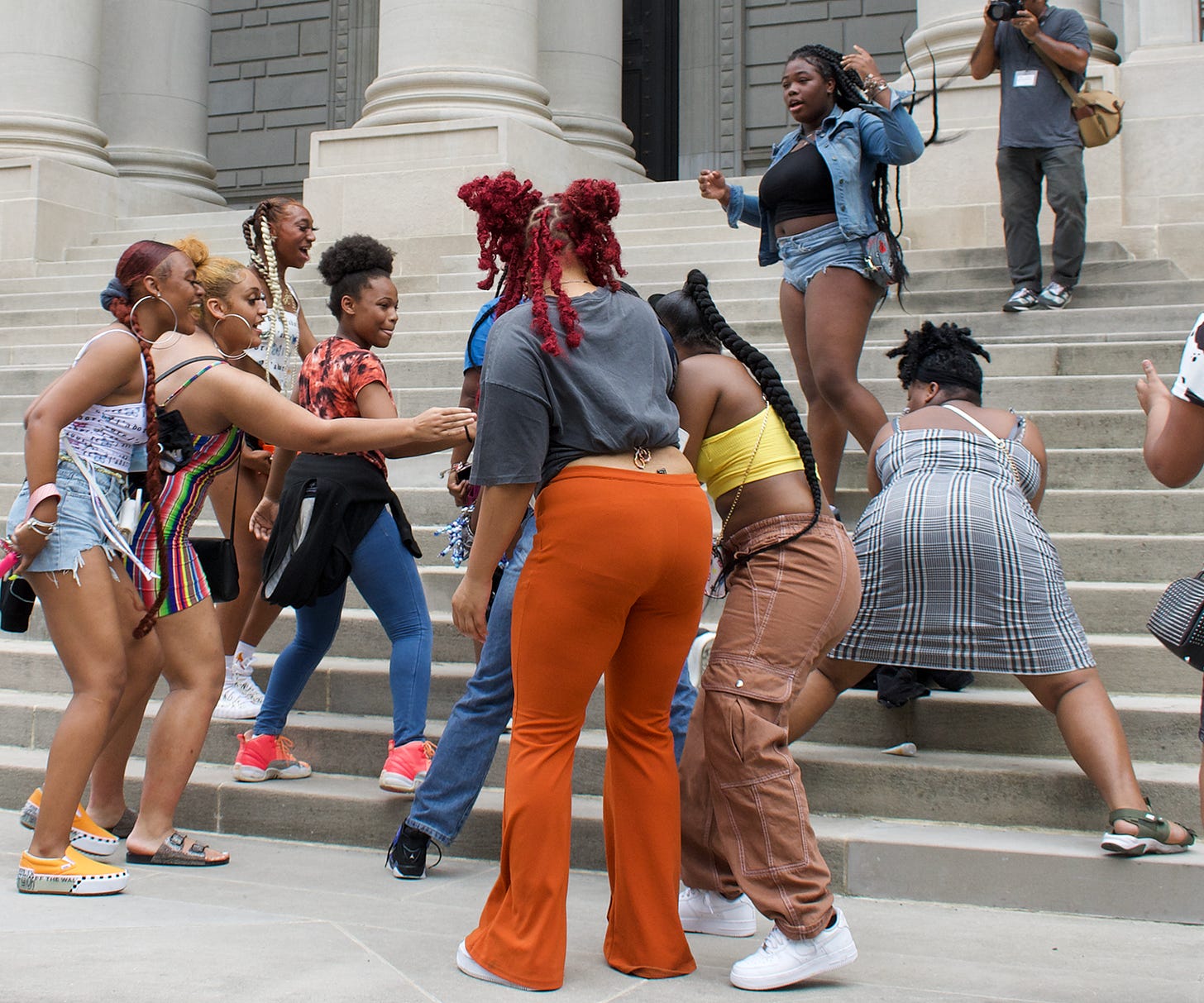On Juneteenth 2021, Ada Pinkston was running a performance of her Empty Pedestals in front of the Freedman’s Memorial on Lincoln Park. There were, in addition to the regisseur, two performers doing slow, evocative movements in front of two silver-coated cubes, which I took to be the eponymous pedestals, placed in opposition to the existing monument.
There had been a public beef a year earlier about this monument — the subservient position of the freedman was thought be some to be offensive. I actually attended a little demonstration in the park about it that summer, in which a young black man lectured on racism and insisted “this ends today” repeatedly through a bullhorn. It did not “end today,” however; shortly thereafter the cops, who were there in great abundance, put fencing around not only around the Freedman’s Memorial but also other statues in the park, about which no one had kicked up a fuss, where it remained for months.
This protest became part of the whole rightwing “blar har libs want to tear down statues of LINCOLN AND WASHINGTON” mishegas. Conservatives pimped these outlier events because the drive to remove Confederate statues was popular and they had to dirty it up with claims that Black Lives Matter protestors were simply heedless wreckers. (Fox News’ “Who is Shaun King, liberal activist who wants to tear down Jesus statues?” is one of my favorite artifacts of that period.)
Me, I’m okay with taking down Lincoln, Jefferson, Washington, any of those. What do their fans think these statues are teaching anyone? Respect for American values? Not doing such a hot job, are they?
Last weekend’s performance took place during what for many park habitués would be brunchtime, and there were few spectators, though in fairness it might have had more later. Pinkston held the mic out to me.
“What do you think about monuments?” she asked.
“Monuments are for the people,” I said. “If the people want them they should stay. If they don’t want them they should go.”
“What do you think about Juneteenth?”
“It’s a small prize in place of bigger things.”
I meant the hastily-passed federal holiday. Juneteenth is a wonderful thing and its observance among communities of color is just one of the multitude of blessings with which black folk have graced this country. And who knows, maybe the recognition will do the rest of us some good in the long run. But having been raised by racists, I know how they think, and I’m sure this has already been stuffed into “all the things we’ve done for you” bag.
I cruised over to Black Lives Matter Plaza where they were getting fired up for the Million Moe March up to Shaw, a historically black neighborhood which now, like Harlem and a lot of other such places, looks less black and less historical than it uses it. The crowd at the Plaza was, like the one I observed the other day, not as big nor as intense as the crowd that came out in the rain the year before, but they still brought life and energy to the place after months of eerie quiet.
BLM Plaza had become out of nothing (and a mayoral decree) a place of remembrance, celebration and promise; then, as events overcame it, it became a bleak reminder of everything promised that had been betrayed. But it’s starting to get funky again. True, the pro-am activist kids speechifying from the flatbed truck were not going to win any Toastmasters contests, but the people they were talking to gave them at least kind attention. Even the guys hustling t-shirts or whipping around BLM flags were a good sign that it was a place worth turning up again.
Plus they had a good go-go band on that flatbed truck. (If you’re not familiar, go-go is revved-up funk with Latin and rock influences; see here.) And, as they rolled up 16th Street NW, the crowd increasingly got with it.
The weed smell became thick like incense at high Mass; a bunch of girls ran to the steps of the Jewish Community Center, put their hands on the concrete steps, and shook their asses; people stepped out of their homes with their kids, their partners, and their pets, lit up like Christmas with reflected joy.
One of the ugly byproducts of Juneteenth’s new status is a bunch of columns by morons trying to emulate the heavy significance of official proclamation with their gassy prose — Jonah Goldberg’s “American Passover” may be the dumbest example, though not for lack of competition. (“Americans—all Americans—are [or should be] rightly proud that we did away with an institution existentially at war with the best version of ourselves,” self-congratulates the inventor of the “Marion Barry” cocktail, which he described as “so black not even The Man could keep it down!”) I won’t try and compete.
I will say this: I’m sure there are places where the gravity of the event was observed, and that’s all good. But for me it was not only a great pleasure but also kind of an honor to be among people who knew that the best celebration of freedom is joy. Joy can be private as well as public, something we can have even when we have nothing else — but we can only share joy when we’re free. So maybe it’s a good thing that they made it federal after all.







"He who feels it knows it"
Wouldn't "he who smelt it dealt it" be a more appropriate tagline for a column referencing Goldberg?
"Those n*****s should shut up about 'freedoms' and get back to work."
Andrew Johnson, 1865 or Jonah Goldberg, 2021? Either fits.